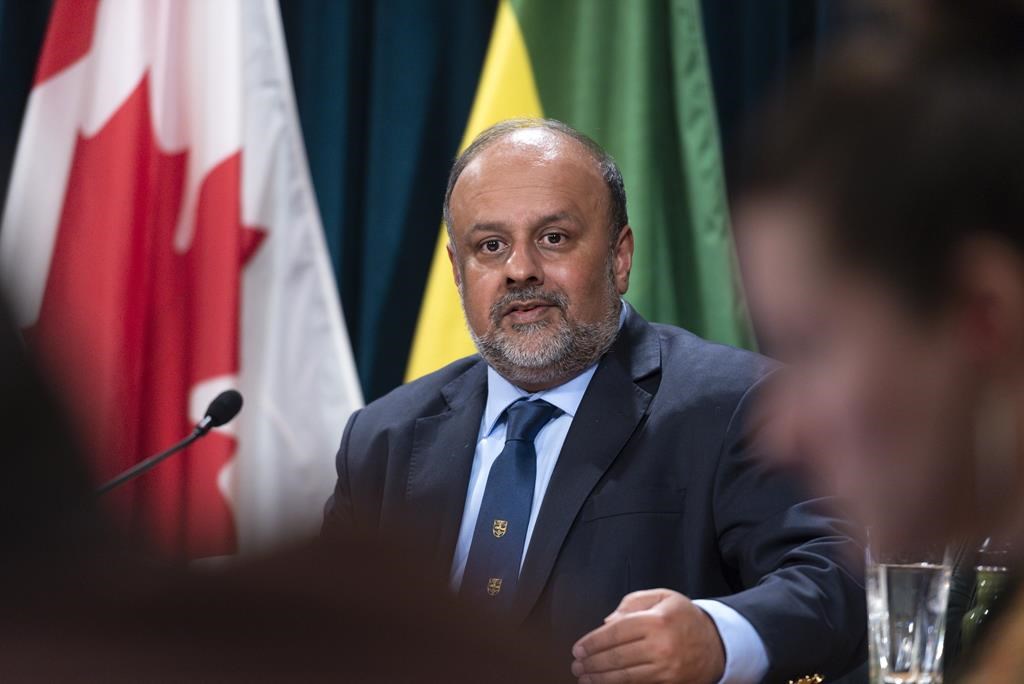Leaders in northwestern Saskatchewan are asking the province to clear up confusion about checkpoints that are restricting travel in the region during the coronavirus pandemic.

Premier Scott Moe announced last month that non-essential movement into the area and between its communities would be limited to help contain the novel coronavirus.
The virus was brought in via travel from an oilsands work camp in northern Alberta.
A letter from northern leaders to the province’s chief medical health officer outlines their concerns over a lack of consultation about the travel restrictions and confusion over how to interpret them.
It says there are no Indigenous language speakers at the checkpoints and staff are not honouring notes from chiefs and councils that authorize certain people to travel.
The letter, posted online, says the province hasn’t addressed food security or how the lockdown means people can’t make a trip south for groceries.

Get breaking National news
Leaders say what’s missing is a discussion about how the public health order on travel is being carried out.
“We can understand the temptation to blame us for complex issues in the northwest,” reads the letter.
“Many people in the province are expressing this attitude, and this is not only deeply painful to us, but also dangerously divisive to the social fabric of our province.”
Of Saskatchewan’s 564 reported COVID-19 cases, 193 of them are in the far north.
A community-run Facebook page says the Dene village of La Loche, 600 kilometres northwest of Saskatoon, is where most of the cases are concentrated and had a total of 143 infections as of the weekend.

Questions about COVID-19? Here are some things you need to know:
Health officials caution against all international travel. Returning travellers are legally obligated to self-isolate for 14 days, beginning March 26, in case they develop symptoms and to prevent spreading the virus to others. Some provinces and territories have also implemented additional recommendations or enforcement measures to ensure those returning to the area self-isolate.
Symptoms can include fever, cough and difficulty breathing — very similar to a cold or flu. Some people can develop a more severe illness. People most at risk of this include older adults and people with severe chronic medical conditions like heart, lung or kidney disease. If you develop symptoms, contact public health authorities.
To prevent the virus from spreading, experts recommend frequent handwashing and coughing into your sleeve. They also recommend minimizing contact with others, staying home as much as possible and maintaining a distance of two metres from other people if you go out.
For full COVID-19 coverage from Global News, click here.








Comments
Want to discuss? Please read our Commenting Policy first.